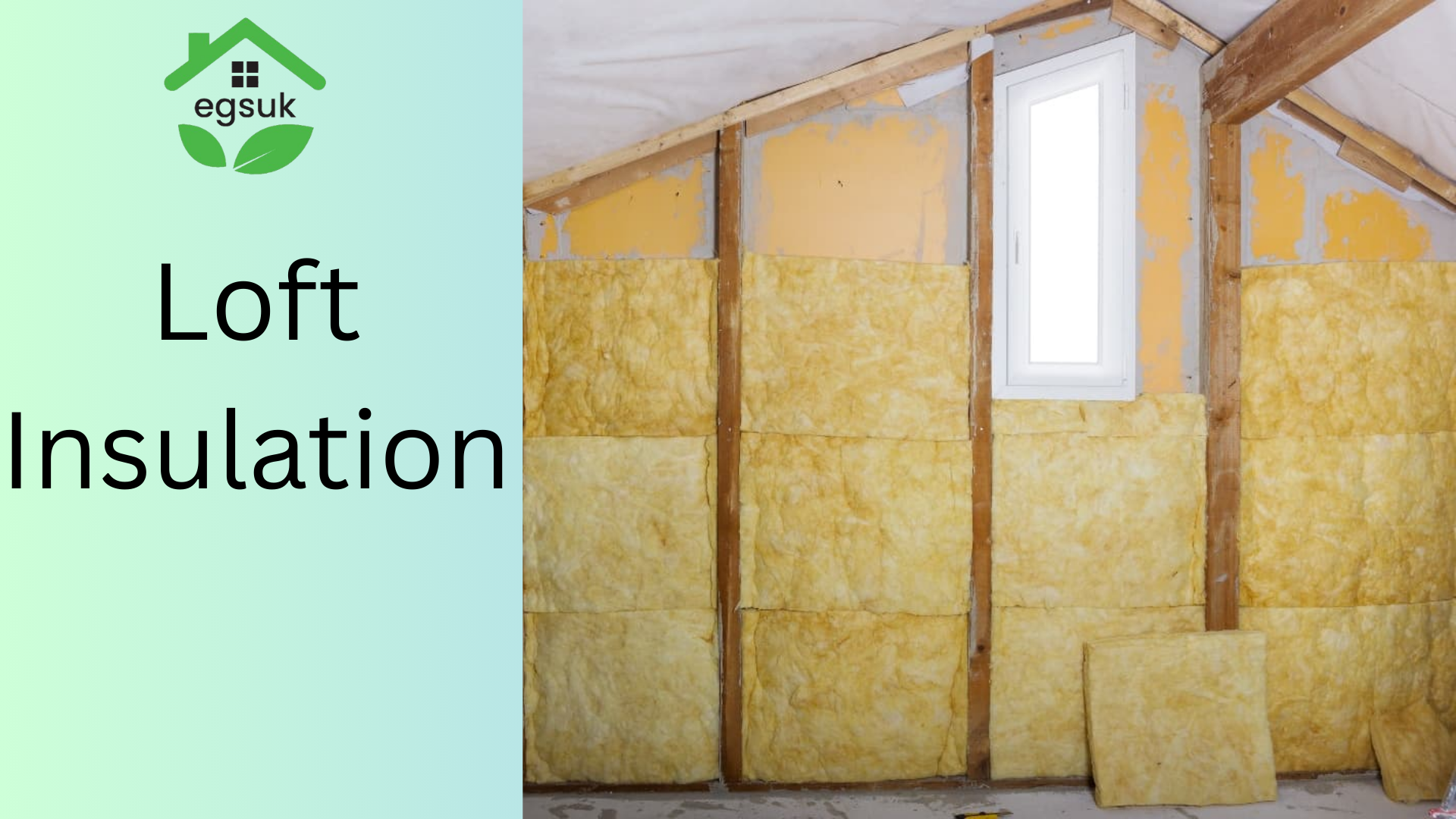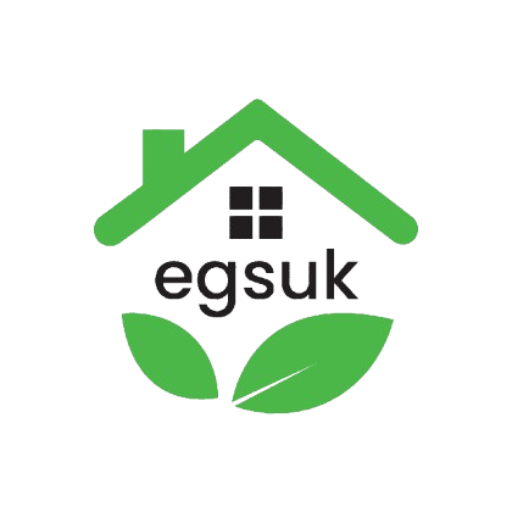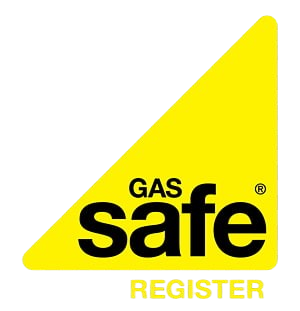
April 30, 2025
When it comes to maintaining an energy-efficient home in the UK, one of the most common questions homeowners ask is, “How much insulation do I need UK?” Insulation is a vital component in reducing heat loss, improving energy efficiency, and lowering heating bills. However, determining the right amount of insulation can vary depending on several factors, including the type of property, the age of the building, and the areas requiring insulation. Whether you’re focusing on loft insulation, cavity wall insulation, or floor insulation, it’s essential to ensure you meet UK building regulations and energy standards. At egsuk.co.uk, we offer expert guidance on how much insulation you need to ensure optimal thermal performance and comfort. This guide will explore key considerations for different types of insulation, including recommended thicknesses, material options, and tips for maximizing energy efficiency, all tailored to your home’s unique needs.
Understanding How Much Insulation Do I Need UK for Different Properties
Loft Insulation Requirements for Homes
When asking how much insulation do I need UK, consider that most homes benefit from 270mm of mineral wool insulation in the loft. Older homes often lack this standard, making it critical for energy efficiency. Loft insulation slows down heat loss, improving thermal resistance. At egsuk.co.uk, we recognize loft insulation as a cost-effective solution. Always consider U-value recommendations when calculating the right thickness, especially for pitched roofs. Good insulation saves energy, reduces bills, and enhances comfort throughout all seasons.
Wall Insulation Factors to Consider
Knowing how much insulation do I need UK also means understanding wall construction. Cavity wall insulation usually requires 50mm to 100mm of material, while solid wall insulation can need up to 150mm. Homes built before 1920 often require solid wall insulation upgrades. Egsuk.co.uk helps assess the correct wall type to determine insulation needs. Consider heat retention, material type, and moisture control when choosing insulation. Accurate measurement and material quality significantly affect overall energy savings and comfort.
How Much Insulation Do I Need UK for Energy Efficiency Standards
Meeting Current Building Regulations
For those asking how much insulation do I need UK, current building regulations provide a clear guide. New builds must meet specific U-values—typically 0.16 W/m²K for roofs and 0.30 W/m²K for walls. Achieving these targets involves selecting proper insulation thickness and materials. Egsuk.co.uk helps ensure compliance by calculating material performance and R-values. The better the insulation, the lower the U-value and the higher the thermal efficiency. Homes with better insulation reduce carbon footprints and heating costs.
Thermal Performance Assessment
Assessing how much insulation do I need UK requires understanding thermal performance. R-value (thermal resistance) indicates how well insulation resists heat flow. Higher R-values mean better performance. At egsuk.co.uk, we offer tools to measure these values and determine appropriate insulation levels. For lofts, walls, or floors, the goal is to minimize heat loss. Home Energy Performance Certificates (EPCs) often reflect insulation quality. Upgrading insulation can increase EPC ratings and overall property value in the UK housing market.

Loft Insulation: How Much Insulation Do I Need UK
Choosing the Right Insulation Thickness
When considering how much insulation do I need UK for your loft, thickness matters. Government guidelines recommend 270mm of mineral wool, but rigid board insulation may require less due to its high performance. At egsuk.co.uk, we help calculate thickness based on property type and energy targets. Poorly insulated lofts cause up to 25% heat loss. Whether retrofitting or insulating new builds, accurate thickness ensures effective energy retention, maximising long-term savings and indoor comfort across all seasons.
Cold vs Warm Loft Solutions
The answer to how much insulation do I need UK depends on whether your loft is cold or warm. Cold lofts require insulation at joist level, usually 270mm, while warm lofts need insulation under the roof slope. Egsuk.co.uk advises on the right insulation layout depending on usage—storage or living space. Warm lofts need extra care in installation and vapor control. Each solution impacts your property’s U-value and energy savings, so choosing the correct type is critical.
Wall Insulation: Determining How Much Insulation Do I Need UK
Cavity Wall Insulation Explained
For those asking how much insulation do I need UK, cavity walls typically require filling with mineral wool or foam. The average cavity wall depth is 50mm to 100mm, and insulation fills this space to prevent heat escape. At egsuk.co.uk, we evaluate the wall type and condition before recommending installation. Cavity insulation reduces energy bills and boosts indoor comfort. Pre-1980s homes especially benefit from upgrades. The effectiveness of insulation depends on consistent fill, thermal bridging, and wall orientation.
Solid Wall Insulation Considerations
If your home has solid walls, understanding how much insulation do I need UK becomes even more vital. Internal solid wall insulation often uses rigid foam boards of 100mm or more, while external insulation ranges from 100mm to 150mm. At egsuk.co.uk, we assess wall type, moisture levels, and U-value goals to provide the best solution. Solid wall insulation is costlier but delivers major long-term savings. It enhances both appearance (externally) and comfort (internally) when installed correctly.
Floor and Roof: How Much Insulation Do I Need UK
Insulating Suspended Timber Floors
Asking how much insulation do I need UK also applies to floors. Suspended timber floors often lose heat through gaps and air leaks. Mineral wool or rigid boards (100mm to 150mm) can be installed between joists. Egsuk.co.uk offers solutions that maintain ventilation while enhancing insulation. Draught-proofing and insulating together provide excellent results. Proper underfloor insulation can save up to £40 annually. Be sure to preserve airflow to avoid condensation problems and maintain long-term floor health.
Flat Roof Insulation Details
The question how much insulation do I need UK also matters with flat roofs. These typically need 120mm to 150mm of rigid PIR insulation to meet U-value standards. Egsuk.co.uk recommends warm roof systems where insulation sits above the roof deck, improving thermal performance and avoiding condensation issues. Cold roof insulation below the deck requires ventilation and precise installation. Whether refurbishing or building new, flat roof insulation must meet regulatory standards and deliver consistent energy savings.
Home Type and How Much Insulation Do I Need UK
Insulation for New Builds
Understanding how much insulation do I need UK for new builds involves achieving high performance from the outset. U-value targets are strict, and insulation materials must match. Egsuk.co.uk provides new home developers with advice on loft, wall, and floor insulation tailored to property specs. Proper design and installation ensure energy ratings are met. Integrated systems combining airtightness, ventilation, and insulation offer long-term benefits. Always check your SAP score requirements to determine insulation depth and type.
Insulation for Older Properties
When evaluating how much insulation do I need UK in older homes, special considerations apply. Properties built before 1930 may lack insulation entirely. Egsuk.co.uk specializes in retrofitting homes with hard-to-treat walls and outdated structures. Solid wall insulation, floorboard upgrades, and loft retrofits can improve comfort and efficiency. It’s vital to balance insulation with ventilation in these homes to avoid damp. Retrofit projects benefit greatly from thermal imaging and air-tightness testing before choosing materials.
DIY vs Professional: How Much Insulation Do I Need UK
DIY Insulation Projects
Some homeowners ask how much insulation do I need UK and then opt for DIY. Loft insulation is often DIY-friendly, especially when using rolls or blankets. However, mistakes can reduce effectiveness. Egsuk.co.uk offers guides and consultations for DIY enthusiasts. Ensure safety, proper layering, and no gaps around lighting or pipework. DIY can be cost-effective but often lacks the precision of professional installs, especially for cavity walls and roofs where correct material application is critical.
Professional Installation Benefits
To precisely answer how much insulation do I need UK, professional assessment is best. Certified installers use tools to measure existing insulation, detect thermal leaks, and calculate U-values. At egsuk.co.uk, our professionals deliver guaranteed results with correct installation methods. They handle moisture control, fire resistance, and air-tightness effectively. While more costly upfront, professional services ensure your insulation meets regulations and delivers maximum savings. Long-term, it adds to home value and protects against future energy price rises.
Financial and Environmental Impact: How Much Insulation Do I Need UK
Cost vs Energy Savings
Understanding how much insulation do I need UK also means calculating ROI. Proper insulation can reduce heating bills by 30% annually. Though initial costs vary—£300 for lofts, £1000+ for solid walls—the payback is usually under five years. At egsuk.co.uk, we help you choose cost-effective materials based on property type and local climate. Energy savings accumulate quickly. In many areas, grants are available to offset costs, especially for low-income households or energy-inefficient homes.
Reducing Carbon Footprint with Insulation
Those asking how much insulation do I need UK often care about sustainability. Insulation plays a vital role in lowering your home’s carbon emissions. By improving energy efficiency, it reduces reliance on fossil fuels. At egsuk.co.uk, we promote eco-friendly solutions like sheep wool, recycled plastic, and wood fibre insulation. These sustainable choices not only help the planet but also improve indoor air quality and living comfort. Every layer of insulation contributes to a greener, cleaner UK.
FAQs
What is the Recommended Insulation Thickness for UK Homes?
The recommended insulation thickness for UK homes varies depending on the area being insulated. For loft insulation, a thickness of 270mm is generally ideal. Wall insulation typically requires 50mm-100mm for cavity walls and 100mm-150mm for solid walls. Always consult professionals like egsuk.co.uk for accurate recommendations.
How Much Insulation Do I Need for My Loft?
For loft insulation, the UK government recommends a minimum of 270mm of mineral wool or equivalent material. This thickness helps reduce heat loss and improve energy efficiency. Egsuk.co.uk provides tailored advice based on your home’s size and energy needs to help you achieve optimal insulation levels.
Can I Install Insulation Myself?
While basic loft insulation can be installed by homeowners, more complex jobs like cavity wall or floor insulation should be handled by professionals. Incorrect installation can reduce effectiveness. Egsuk.co.uk offers expert installation services to ensure proper insulation, compliance with building codes, and long-term energy savings.
How Do I Know If I Need Insulation?
If your home experiences fluctuating temperatures, drafts, or high energy bills, it may indicate insufficient insulation. Egsuk.co.uk offers free energy audits and assessments to evaluate your home’s insulation needs. Adding or upgrading insulation is a cost-effective way to enhance comfort and reduce energy consumption in your property.
What Types of Insulation Are Available?
Common insulation types include fiberglass, mineral wool, foam boards, and cellulose. Each material has different performance levels based on thermal resistance (R-value) and moisture control. Egsuk.co.uk helps homeowners select the best insulation type suited to their property’s structure, ensuring maximum efficiency and energy savings.
How Much Does Insulation Installation Cost?
The cost of insulation varies depending on property size, type of insulation material, and area being insulated. Loft insulation can cost around £300, while solid wall insulation may exceed £1000. Egsuk.co.uk provides cost-effective solutions and offers free quotes, helping you make informed decisions for your insulation project.
Does Insulation Improve Property Value?
Yes, insulation can increase the value of your property. Homes with high-quality insulation are more energy-efficient, offering lower utility bills and better comfort, which is appealing to buyers. Egsuk.co.uk provides professional insulation services that not only improve your home’s energy performance but also enhance its market value.
What Are the Environmental Benefits of Insulation?
Proper insulation reduces energy consumption, thereby lowering your home’s carbon footprint. It helps minimize heating needs, reduces reliance on fossil fuels, and lowers greenhouse gas emissions. Egsuk.co.uk supports eco-friendly insulation materials, providing sustainable solutions that contribute to both energy savings and environmental protection.
How Long Does Insulation Last?
The lifespan of insulation depends on the material. Most modern insulation materials, like fiberglass and foam boards, last up to 40 years with proper installation. However, regular checks for dampness or settling are essential. Egsuk.co.uk offers maintenance and advice to ensure your insulation remains effective over time.

